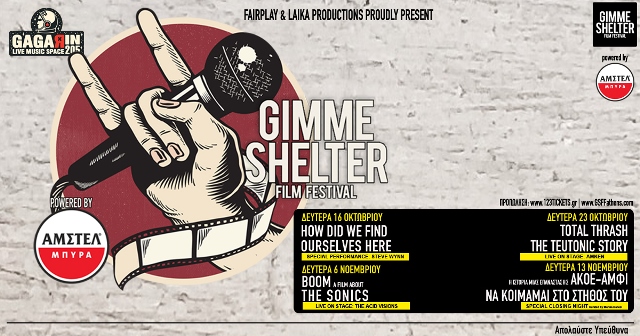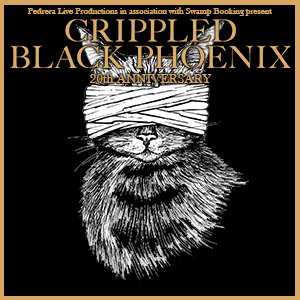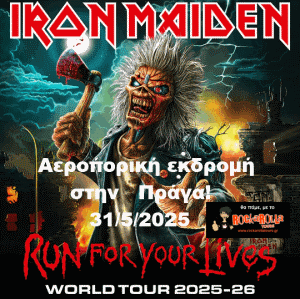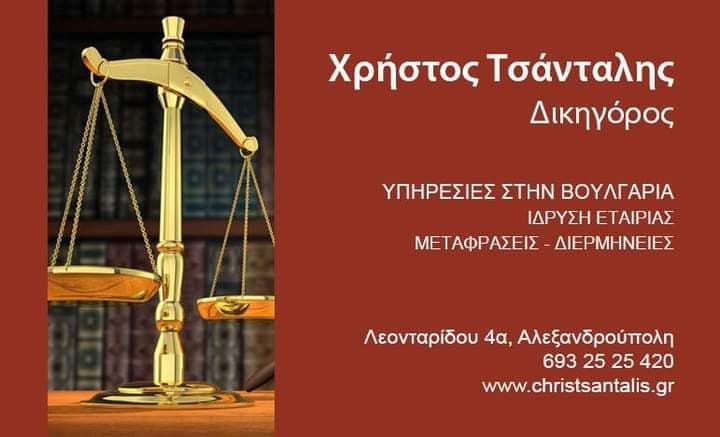This years edition of Gimme Shelter Film Festival, hosts documentary film "The Dream Syndicate. How Did We Find Ourselves Here?" that pays homage to the story of the american alternative rockband The Dream Syndicate. It's a story about fast success, lost friendships, major label struggles and filled with loads of great music.
Emiel Spoelder, director, producer and writer, answers our questions on his journey creating this film and gives us a unique insight into the world of this era, when hyper formulated pop music was the norm, and The Dream Syndicate emerged from Los Angeles becaming an overnight success with their raw, feedback driven, guitar music.
RockOverdose: Hello Emiel and welcome to Rock Overdose! How did you, a Dutchman, come to direct a film about The Dream Syndicate, a band hailing from sunny Los Angeles? Is there some sort of interesting backstory to this?
Emiel Spoelder: When I was 19 years old, I was a film student at the University of Amsterdam. At the time I was a huge fan of the Ryan Adams. The first time I saw Ryan live was November 19, 2003 at the Paradiso in Amsterdam. Even though I was eagerly waiting to see the main act, I was blown away by the opening act Steve Wynn & The Miracle 3. The songwriting, the guitarwork, the drums and the driving bass just got me right away.
After this night I started to discover all the music that Steve recorded in the past twenty years, so also The Dream Syndicate albums. What an amazing journey that was! In the following years in saw Steve play live in different formations; solo acoustic, with The Miracle 3, with The Dragon Bridge Orchestra and with Danny & Dusty. The diversity in his music was so fascinating to me. I even interviewed him once for a show I had on local television.
In 2009 I moved to Los Angeles to study one more year at the film academy there. In the first week I was living there, Steve Wynn played at The Troubadour with The Baseball Project (his band with Linda Pitmon, Scott McCaughey, Peter Buck and/or Mike Mills). After the show Steve recognized me and introduced me to some of his friends and family who were also in attendance. While talking to his mom Marlena, I mentioned my film studies. She replied: “Why don’t you make a movie about my son?”. As a film student I’ve been obsessed with music documentaries, so from the start it sounded like a great idea. It took a few years to come up with an actual plan for the movie, but this is where the seed was planted.

It was my initial plan to make a documentary about the musical career of Steve Wynn. Again, I loved the diversity of his music and thought this would make a great story. After shooting the first round of interviews between 2012 and 2014, I started editing. Soon I found out that it was actually really hard to find a storyline through all Steve’s different bands and projects. This is where I got stuck for a quite a while. I really had no idea yet how to finish this film. At the point my career I television really was going pretty well and took all my attention.
It wasn’t until 2019 when I saw The Dream Syndicate during the These Times tour. After the show I talked to Steve and found out that he was still fully supporting this project. He really encouraged me to pick it up again.
I think for about half a year, I talked about it with a lot of people and then finally I realized it should be a film about The Dream Syndicate. There is such a nice storyline, in the 80’s as well as after the reunion; there is fast success, major label struggles, lost friendships and very interesting personnel changes. This is where the project really took off again. The biggest challenge here was keeping up with the band, they released two more albums in the meantime, and I had to find an appropriate place to end the film. I think it all came together very nicely.
RockOverdose: Were you familiar with the band before you became involved with the film?
Emiel Spoelder: Absolutely! In think my answer to the previous questions covers most of it. What I can add is that the making this film made me learn to appreciate some Dream Syndicate songs even more. A song like Sure Thing has never really been on my radar until last year. One day while editing the documentary, I discovered the live version of Sure Thing on the album The Day Before Wine and Roses and I just had to hear it again and again. That driving rhythm, it’s so addictive!
The song How Did I Find Myself Here? was already one of my favorites, but after hearing the stories about the recording process from all the bandmembers, the song became even more interesting to listen to.
RockOverdose: Is this your first music documentary? How did you approach it in terms of timeline and of telling the story of the band?
Emiel Spoelder: Yes, this is my first music documentary and also my first feature length film.
The documentaries Tom Petty: Runnin’ Down A Dream and Rush: Beyond The Lighted Stage were a huge inspiration to me. I watched both movies countless times and always loved how they chronologically told the story of these bands. So, from the start of project I knew this is how I also wanted to tell the story of Steve Wynn and later The Dream Syndicate.
In my television career, I shot and edited hundreds of shorter stories. Since this is my first longer story, and as I had around 40 hours of interview footage, it was quite challenging to keep this film under two hours. Luckily the well-known Dutch (music documentary) filmmaker Bram van Splunteren agreed to coach me a bit in the last phase of the edit. He has made a ton of great music documentaries in his career and he really helped me with the storyline.
RockOverdose: Many people believe that you have to be a fan in order to make a music documentary about a particular artist. What’s your take on this and do you think being a fan helps or it may in some cases become an obstacle?
Emiel Spoelder: Being a fan helps a lot, since you’ll be spending a lot of time with the music, the musicians and their story. As a fan I wanted to know everything about this band, I was honestly curious to find out everything. And the great thing was, during the making of this film I became an even bigger fan of The Dream Syndicate’s music.
And yes, in some cases being a fan can definitely become and obstacle. As a fan I love a lot details in the story, which sometimes made it quite challenging to decide which elements of the story were maybe a little less interesting for someone who’s not a fan (yet). That’s why I showed the rough cut to a small test audience who didn’t know too much about The Dream Syndicate. This definitely helped a lot.
If I had the time and budget, I would love to make a 4-hour version of the documentary, just like the film about Tom Petty & The Heartbreakers. So many great stories remain untold, which I know the fans of the band would love to hear!
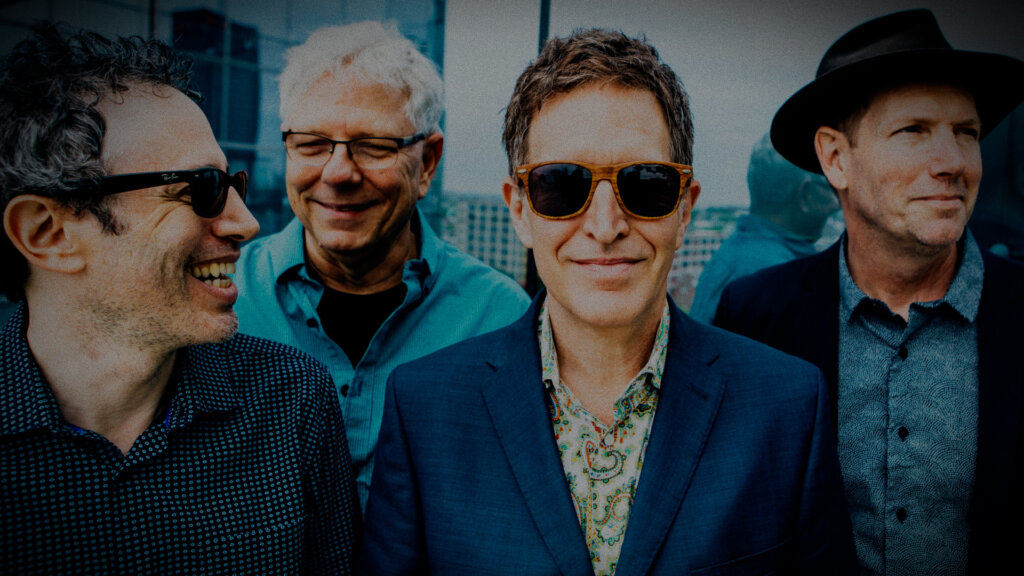
RockOverdose: Kendra Smith has minimal participation in the movie and only through audio, while Karl Precoda is nowhere to be found. Given that those two had an integral part in forming the band’s sound, it’s quite striking that they’re not featured in the film. Is there a reason for these absences?
Emiel Spoelder: When I just started this project, many people said: “Good luck with Karl!”. All the people involved haven’t talked to him for a very long time. I believe his still not too happy about what happened in the eighties and leave it all behind him. He’s teaching cinema studies now at Virginia Tech.
As can be seen in the documentary, Sandy Pearlman (the producer of Medicine Show) absolutely loved working with Karl and was very frustrated about the recording process with Steve. He keeps repeating how amazing of a guitar player Karl was. I emailed a private YouTube link to the entire interview with Sandy to Karl. I was hoping it might help to change his mind. I can see it’s been watched a few times, but I never heard back from him.
Kendra Smith lives self-sufficient somewhere in Northern California, cut off from most of the world. Her manager told me that interviewing her for this film was just not going to happen. He offered me a recording of an interview he had done with her over the phone. Of course, I would have been very excited to meet her in person, but I’m glad I got to use the audio. I think it even adds a bit to the mystery of her persona.
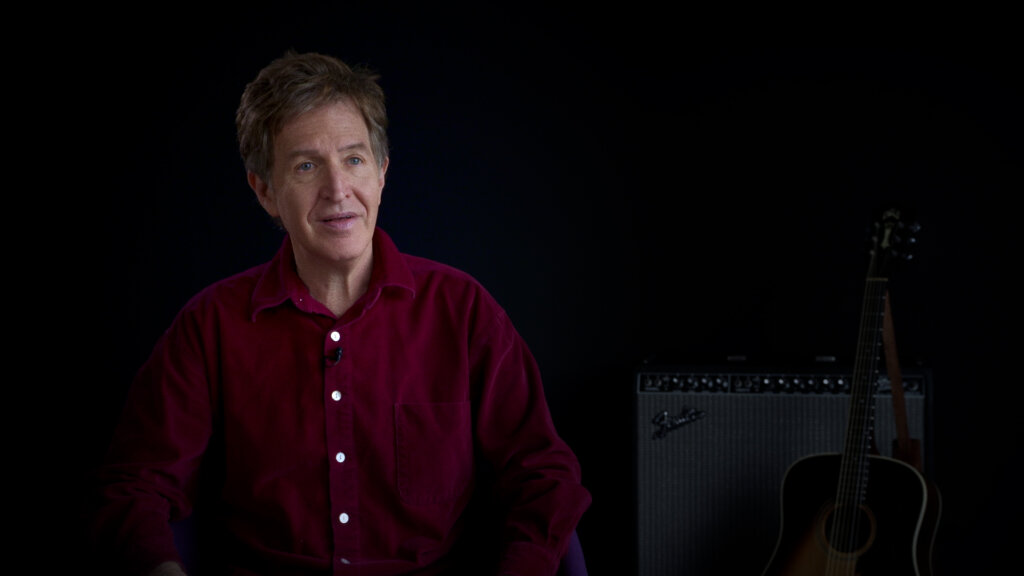
RockOverdose: How easy was to get all those people on film to talk about The Dream Syndicate? Is there any person you really wanted to have on the movie, but for some reason couldn’t make it happen?
Emiel Spoelder: For most people it was pretty easy. Steve Wynn helped me a lot to get in touch with most of his current and former bandmates.
I think the funniest story is how I managed to get to Sandy Pearlman, the producer of Medicine Show, involved. It was 2013 and the only contact information I could find was a phone number on an old website of his recording studio. For a few weeks I called this number every day and finally someone picked up. It was Sandy himself and he agreed to meet me. When I interviewed him a few months later in Los Angeles, he told me that I was calling the number of his fax machine all the time and that after a few weeks he finally decide to pick it up. I’m really glad he did, the story of Medicine Show couldn’t have been told without his input!
For most of the other interviewees, either their management or sometimes even social media was the way to get in touch with them.
Other people I would have loved to talk to are Vicki Peterson, Nels Cline, Chuck Prophet, Peter Buck, Flea, Bob Mould, Thurston Moore, Stewart Lee, J. Mascis and Ira Kaplan. They all have an interesting connection to The Dream Syndicate. For various reasons it didn’t work out; either it was scheduling conflicts, visa problems, travel budget, the pandemic or me just not being able to get in touch with them.

RockOverdose: Has the film premiered in the festival circuit? What feedback have you got so far?
Emiel Spoelder: Until now film has been shown in Amsterdam, Los Angeles, New York, Copenhagen and Karlsruhe. The feedback of the audience is pretty great and we got some excellent reviews in the music press.
If any other festivals or cinemas are interested in screening the film, please do not hesitate to get in touch with me.
RockOverdose: Thank you very much for your answers. See you soon in Athens!
Emiel Spoelder: Thank you for your questions and for your time! Looking forward seeing you in ten days in Athens.
For RockOverdose,
Dimitris Soursos
GIMME SHELTER FILM FESTIVAL
Buy tickets
16, 23 Οκτωβρίου & 06, 13 Νοεμβρίου / Gagarin 205 Live Music Space
Tιμές εισιτηρίων:
16 Οκτωβρίου: 20 Ευρώ
23 Οκτωβρίου, 06 & 13 Νοεμβρίου: 15 Ευρώ
Προπώληση:
- Ε-tickets στα 123tickets.gr & www.GSFFathens.com
- Hard Copies στο Hard Rock Cafe Athens (Ανδριανού 52, Μοναστηράκι).
Ακολουθήστε μας (@GSFFathens) ή εγγραφείτε στο newsletter μας
μέσω του www.GSFFathens.com. Για να τα ξέρετε πρώτοι όλα!
Παραγωγή: Laika Productions | Fairplay
